Hayley Kiyoko Is The Joy of Pride
Beloved by fans as "Lesbian Jesus," Hayley Kiyoko comes to Sunday's Capital Pride Concert to spread hope, love, and heartfelt affirmation.

“I’ve been really grateful to find a community that has celebrated me and allowed a space for me to be my true authentic self,” says Hayley Kiyoko.
The popular musical artist has become a beacon for the LGBTQ community, and her most devoted fans have gone as far as to proclaim her “Lesbian Jesus,” a moniker that most certainly annoys foes of the LGBTQ community, who have, as of late, upped their attacks, either through laws that disallow the teaching of LGBTQ-inclusive curricula, banning drag outright, or removing LGBTQ literature from school libraries.
To Kiyoko, “Lesbian Jesus” is an honor and a reminder that as an out LGBTQ artist, she has a greater purpose to stay true to her music, to her fans, and to herself.
Kiyoko has been a bright star in pop music’s universe for years, but recently her star has gone nova.
It started in the summer of 2015, when Kiyoko released “Girls Like Girls,” a bold and boast-fueled coming-out anthem with the simple yet snappy refrain, “Girls like girls like boys do, nothing new.”
Earlier this year, Metro Weekly‘s Hugh McIntyre proclaimed “Girls Like Girls” as one of “8 Essential Lesbian Love Songs,” mixed in with a list that included k.d. lang’s “Constant Craving,” Janelle Monae’s magnetically charged coming-out jam “Make Me Feel,” and Mary Lambert’s affecting love ballad “She Keeps Me Warm.”
Kiyoko’s synth-pop song, McIntyre wrote, “is a tender love song about two young women [with a] message of normalizing same-sex romance [as] conveyed through its relatable lyrics,” complemented by a Kiyoko-directed music video that is “a heart-wrenching and visually stunning portrayal of the song’s themes.”
“Girls Like Girls” fared only modestly upon initial release. But the song has proven to have extraordinary staying power, becoming a Gold-Certified single after registering 500,000 sales and streams in August of 2020, a full five years after its release.
Arguably, however, the song’s greatest impact has been on the artist herself. Kiyoko, who got her start as a teenage actor on various Nickelodeon and Disney Channel shows, was so inspired by public and fan responses to “Girls Like Girls” –- technically her fourth-released single — she effectively made it her calling card: The song stands as a testament to her forthrightness as an out and proud lesbian singer-songwriter.
“Girls Like Girls” also went on to inspire Kiyoko to write her first book. Published at the end of May, the young adult novel of the same name expands on the song’s lyrics and the music video’s characters. Girls Like Girls became a New York Times bestseller shortly after publication.
“It’s been one of the most creatively fulfilling experiences I’ve ever had,” says Kiyoko of writing the book. “I love directing music videos, but you have to pay for everything in a music video. And when you’re writing a novel, you don’t have to pay for words. You can just literally put anything you want on the page and it’s there for you.
“So it was a really cool, creative experience to be able to create from a limitless place, as opposed to most of my career, creating from limitations and creating out of the necessity of people saying ‘No. Writing this novel gave me this tool and gift to really just be free and to take the story where I wanted.”
The book, she says, is about “two young girls falling in love. It ends in hope. And, for me, my artistry is all about igniting hope for others. Coley, the protagonist, is the lead. And though the characters are fictional and the setting is fictional, what Coley goes through is based on my personal experience when I fell in love with one of my best friends in high school.”
A year ago, the 32-year-old American artist of mixed Japanese, English, and Scottish ancestry released Panorama. That strong sophomore album went on to earn Kiyoko a 2023 GLAAD Media Award nomination as Outstanding Music Artist. The set was led by the single “For The Girls,” a sparkling, summery “Girls Like Girls”-inspired pop gem. It served as the vehicle by which Kiyoko publicly confirmed her relationship with former Bachelor contestant Becca Tilley, and the two can be seen cavorting together in the song’s music video, directed, naturally, by Kiyoko.
This spring, the two co-starred in another Kiyoko-directed music video, this time for “Hungry Heart,” her collaborative song with the Swedish electronic dance act Galantis and DJ Steve Aoki.
Kiyoko, who will be one of the headliners on Capital Pride’s Main Concert Stage this Sunday, June 11, and again at San Francisco Pride at the end of the month, recently concluded a tour for her album Panorama. During the tour, Kiyoko had a tense run-in with Tennessee law enforcement after inviting several drag queens to appear on stage with her.
A day before our interview, a federal judge ruled the Tennessee law unconstitutional, an impingement on freedom of speech, and ordered a halt to any enforcement actions — at least in Memphis, for now. Apprised of this small but vital victory, you can almost hear Kiyoko smile across the Internet feeding our Zoom audio call.
“We’ll take all the wins that we can get,” she says. “Every win is one step forward to the next.”

METRO WEEKLY: Let’s start at the beginning. What was your young Hayley life like?
HAYLEY KIYOKO: My life growing up was very unique. My mom’s an ice skating choreographer, and she was born in Montreal and grew up in Toronto. And my dad was a stand-up comedian. And so I grew up very much in the arts. My parents always encouraged dreaming, creating, and self-expression.
At a young age, I was choreographing dances for my friends, and putting on performances. I started playing drums when I was five, and I would write music when I was five and six years old. And so, I was pretty much creating music and dreaming of becoming a performer from the very beginning.
I think, for me, as I got a little older, and I was navigating my sexuality and my identity, I definitely felt like an outcast.
And so, I was grateful that I had music to be my friend. It was an outlet for me to express myself, express how I truly felt. It gave me a safe space and comfort to be my true self. And so, I would write music in my bedroom on a guitar, or I would buy a four-track cassette recorder and record music through that. That was the beginning years of just my younger self. But I didn’t start really booking anything or acting. I started doing commercials in middle school, so I was probably 13 or 14 when I started doing commercials. And then I didn’t book my first acting role until I was 19.
MW: It was surprising to find out that you had appeared in commercials at a young age. It was more surprising to find out that you were politically engaged at a young age. You were your student council president of your middle school, and vice president in your senior year. You weren’t apathetic, clearly.
KIYOKO: Thank you. Yeah, I was really into student council. I was very heavily involved in middle school. And yes, I was class president in middle school and I would do the announcements. I think, for me, I struggled to find community. And especially being biracial, being half-Japanese, and with my sexuality, I lacked community and I lacked support. And so therefore, I put all of my energy into seeking that out through student council, because student council was very like, “Let’s organize and let’s create spirit for the school and community.” I just really gravitated towards that because it gave me a sense of community that I didn’t feel comfortable tapping into at that time in my life.
MW: You’ve been quoted as saying you knew at the age of six you were gay. What was it in you that made you realize it at that age?
KIYOKO: I didn’t know what the term was. All I knew was that I got butterflies when I was around girls and that that was not the norm — that was not what everyone else felt. And so, I knew that I was different at that age, and was trying to process and navigate how to hide how different I was from so many of my peers.

MW: I think a lot of us feel that way. What gave you the courage to come out to your family so early?
KIYOKO: I just felt like I needed to express myself. Everyone’s coming out journey is different. I came out multiple times. I came out at a younger age, and then was told it was just a phase. And then I came out again, and then I got my heart broken. And then I came out again. I think for a lot of queer people, coming out is not a black-and-white thing. It’s a long journey, it’s a process. Half of it is coming out to yourself and acknowledging your own truth, and accepting that.
MW: There are a lot of people who will be at Capital Pride. And the majority of them are comfortably out in their lives. But there are going to be those younger people who have quietly wanted to see what Pride was all about. What would you say to those people who are still questioning, still on the cusp of coming out, but exploring? What encouragement would you give them?
KIYOKO: Well, as you talk about this, I think about the first Pride that I went to. I was in Vancouver and I was shooting Scooby-Doo. I had never been to a Pride, because I was terrified of rainbows. When I was younger, this girl asked me my favorite color and I said it was rainbow, and then she told me I was gay. And so, I hated rainbows. I hated associating myself with rainbows for a very, very long time, and that traumatized me.
So I remember a group of my castmates were like, “Let’s go to Pride,” and they were just allies. And I was like, “Oh yeah, I’ll be an ally.” I remember sneaking into this Pride and trying to make sure no one saw me just because I didn’t want anyone to think I was queer.
And just seeing this outpouring of community and people just being their authentic selves, and being on these floats, and people celebrating them and cheering them on — I remember it being a really cool, inspiring thing. I thought, “Wow, one day I’m going to be able to stand on that float and truly believe that I love myself.”
To think I came from then to now, being very comfortable with my sexuality and very proud of it, as well — I think for those that are going to Pride who are still navigating themselves, I’m just so proud of them for having the courage to expose themselves to a very welcoming and warm community that is ready to welcome them whenever they’re comfortable and ready to do so.
MW: I take it you’re no longer afraid of rainbows.
KIYOKO: I love rainbows, yeah. I love rainbows now.
MW: It’s interesting you bring up the 2009 Scooby-Doo film, because I noticed you played Velma. And, of course, within the Scooby-Doo canon, Velma is now lesbian.
KIYOKO: Yeah, she’s out. Which is really funny, because when I booked Velma, I was like, “Do they know that I’m half-Asian? And also, do they know that I’m gay?”

MW: But in your film, she’s not played as a lesbian.
KIYOKO: No. No, not at all. No.
MW: Your music is really perfect for Pride. It’s fun, it’s upbeat, but it’s also incredibly emotional. There are a lot of layers to it. Can you talk about your goals for your music?
KIYOKO: My goal with music is to just ignite hope and inspire others to keep believing in themselves, and to keep going, and to keep dreaming. And if they don’t see someone that looks like them or presents like them out in their field or their industry, to be that first person to do that and to create that space to hopefully inspire younger generations to chase their dreams and do the same.
MW: Is it easier these days, do you think, for artists to emerge musically than maybe it was several decades ago, because of things like streaming and YouTube?
KIYOKO: I remember when I first started working in music and pursuing music, I would play the Pig ‘N’ Whistle on Hollywood Boulevard and try to do as many open mics as I could, because I didn’t have an outlet like TikTok or Spotify to just share my music with the world.
And so, I’m grateful for those platforms for people, especially now, because there’s such opportunity to get to express yourself and to find a community of like-minded people that feel the way you feel. The Internet and social media is a tricky and interesting thing. Obviously, it exposes us to a lot of people and can connect and bring us together. And then also it can be isolating and dark at times, as well. So it’s a fine line, but I’m very grateful that there are more opportunities for people to be able to just release their music, and find a community and audience out there.
MW: You just concluded your Panorama Tour. How was it?
KIYOKO: Oh, it was one of the best tours I’ve ever had. I think it might have been my favorite tour ever. It was so wonderful to be back on the road. I think we did 33 dates, and it’s been over four years since my last headlining tour. To be able to reconnect with my fans and to play my new album, Panorama, for everyone, and hearing them screaming the lyrics and getting to do meet and greets, and the Q&As — it was just so magical to be reconnected with everyone.
MW: Was there a specific city on the tour where you were like, “I just could play this city every night.”
KIYOKO: There were tons I loved. Orlando was our opening show. It was the loudest show ever. It was hurting people’s ears, everyone was screaming so loud. I loved my shows in Toronto, Montreal. And Boston was our second-to-last show and that was incredible. The energy was amazing in the room.
I mean, every show was just truly unique and liberating and passionate. We did [the Fillmore] Silver Spring on June 2nd — so it was amazing to end the tour at the start of Pride and getting to celebrate that with my fans.

MW: Who are your musical influences? What do you love to listen to?
KIYOKO: Growing up, Stevie Wonder. I love the storytelling he’s created with his music. I also really love Coldplay — they were a huge inspiration for me growing up. And I love indie rock bands or indie alternative bands. I love Karen O from the Yeah Yeah Yeahs, and TV On The Radio. A lot of my influences come from that time of listening to a lot of indie-alt music — just like walls of sound that feel cinematic or just take you away into another world.
Right now, I love Raye — I love My 21st Century Blues, her debut album. It’s amazing. And so I listen to that a lot. There’s a lot of really incredible music out right now. And I find myself always inspired by anything, really. I’m inspired by nature. I’m inspired by human interaction. And I think music can be a very, very powerful thing that can help us heal and bring us together.
MW: Within your fan community, you are known as the “Lesbian Jesus,” which I absolutely love.
KIYOKO: When it first started happening, which was in 2018, I think a fan or two had said it to me and I thought it was a nickname. You know how you get new vocabulary words every couple years and people start saying random slang words? So I just thought everyone was being called Lesbian Jesus.
And then, I went on Twitter, and realized that I was the only person being called Lesbian Jesus. And I was like, “Oh, this is different.” I never really had a nickname growing up in school. My name’s Hayley and no one really gave me a nickname. And I was always really jealous because I always thought it was really cool when people had nicknames. So I guess the universe is really taking care of that for me post my adolescence.
MW: With all the attacks on our communities, from all sides, but particularly these bans on drag and on books, I started to think, “Can music be far behind? Can we suddenly start to see people starting to try to put bans on certain types of music or artists?” What do you think? How do we stop this?
KIYOKO: Well, I’m hoping that goodness prevails, because I think that we have to have freedom of speech, and we should be free to be our authentic selves and to express ourselves. And as we’ve seen in history, banning books and trying to suppress communities and trying to silence communities is not healthy for anyone and it’s not okay, period.
I have hope for humanity that we will prevail through these extreme dark times, and this cruel and unnecessary hate that we’re having to navigate. It’s a lot right now and it’s really challenging, especially for our LGBTQIA+ community, to just exist and to feel welcomed and to feel safe to do so.
My focus is to continue to create art and to express myself, and to not let politics and government try to silence my voice and who I am as a person. And I think that overall, we’ll be able to fight this and get through this. It’s just a very challenging time in our country and we have to look out for one another. We have to take care of our mental health. We have to protect one another, because it is very heavy. And especially for people that are in our community having to navigate their own safety daily.

MW: Prides have always been important. Prides have always been a celebration, but they’re also a protest. Does the climate today make things like Capital Pride and San Francisco Pride, where you’re also appearing, hold more weight?
KIYOKO: I think there’s always weight to Pride. Because Pride is also a protest. And many generations before us had to fight for the privilege to be able to be seen and to celebrate ourselves collectively as a community out in public.
So I think Pride will always have a wonderful celebration part to it. But also a deep-rooted weight of “We must show up for one another and we must hold our allies accountable as well to show up for us, and to do what’s right, and to stand up for what we believe in, which is being able to be our true authentic selves always.”
MW: And what gives you pride in our community?
KIYOKO: Everything gives me pride. My community is so inspiring, and seeing people’s joy, and strength, and being able to show up daily for one another. And especially showing up for yourself gives me pride. To be able to see anyone in my community choosing to continue to fight for themselves, whether it’s mental health, whether they’re in an unsafe environment and trying to get in a safer environment, surrounding themselves with more supportive people. I’m just so endlessly proud of my community for showing up for themselves, and to not let this country tell us who we should be and who we should love.
MW: During the last election, you endorsed Biden. And it looks like we’re going to have Biden again. How do we win? How do we keep Biden in office? What do we need to do as an LGBTQ community to help keep things safe for us?
KIYOKO: Obviously, we’re definitely not wanting DeSantis or Trump anywhere near office. But I think the most important thing is to not give up hope. We can’t give up on hope. And showing up for one another, and fighting for what’s right. It’s a privilege to be able to vote and to have our voices heard. And we have to continue to make sure that that is a freedom to be able to do so.
I’m not a politician. I don’t know how to solve world peace. But as a human, I think our focus needs to be to not give up. Because it can be very disheartening to see all of this legislation trying to be passed, and all of this hate, specifically towards the LGBTQIA+ community. And it can be really easy to just be like, “Well, can we even fix this?” So we absolutely can show up for one another — we’ve done it before through numbers.
It’s just about really rallying behind one another, and showing up, and making sure you’re registered to vote, and making sure you’re voting, and making sure you’re having conversations with people. That’s all we can do. We have to keep fighting for what’s right.
MW: I love the idea of hope. What gives you hope?
KIYOKO: What gives me hope is witnessing kindness. I feel like, yes, there’s a lot of darkness and there’s a lot to navigate in this world. But there’s also a lot of wonderful, wonderful people out there that are showing up for one another, and being kind through adversity and challenges throughout our days. And so I think that kindness definitely gives me hope for our future.
Hayley Kiyoko will appear at D.C.’s Capital Pride Concert on Sunday, June 11, sometime after 7 p.m. Visit www.capitalpride.org.
Her book, Girls Like Girls, is available wherever books are sold, in both hardcover and audio formats, including www.amazon.com.
Visit www.hayleykiyokoofficial.com. Follow her on Twitter at @HayleyKiyoko.
Support Metro Weekly’s Journalism
These are challenging times for news organizations. And yet it’s crucial we stay active and provide vital resources and information to both our local readers and the world. So won’t you please take a moment and consider supporting Metro Weekly with a membership? For as little as $5 a month, you can help ensure Metro Weekly magazine and MetroWeekly.com remain free, viable resources as we provide the best, most diverse, culturally-resonant LGBTQ coverage in both the D.C. region and around the world. Memberships come with exclusive perks and discounts, your own personal digital delivery of each week’s magazine (and an archive), access to our Member's Lounge when it launches this fall, and exclusive members-only items like Metro Weekly Membership Mugs and Tote Bags! Check out all our membership levels here and please join us today!








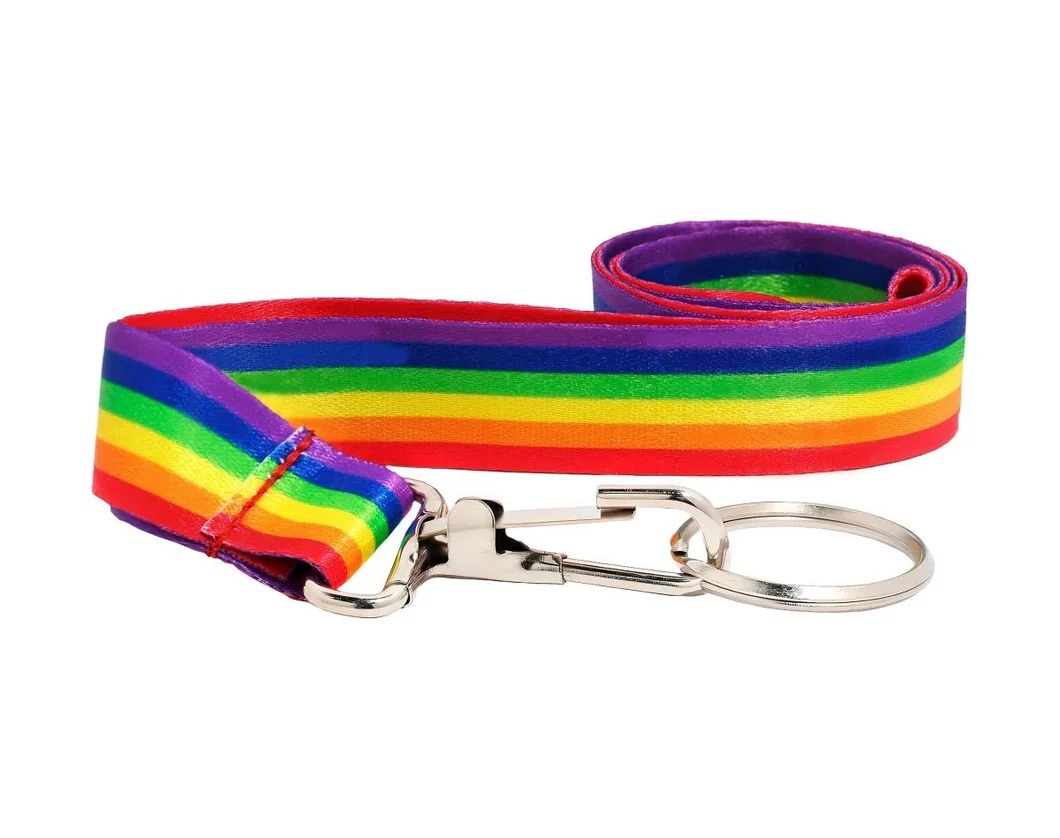
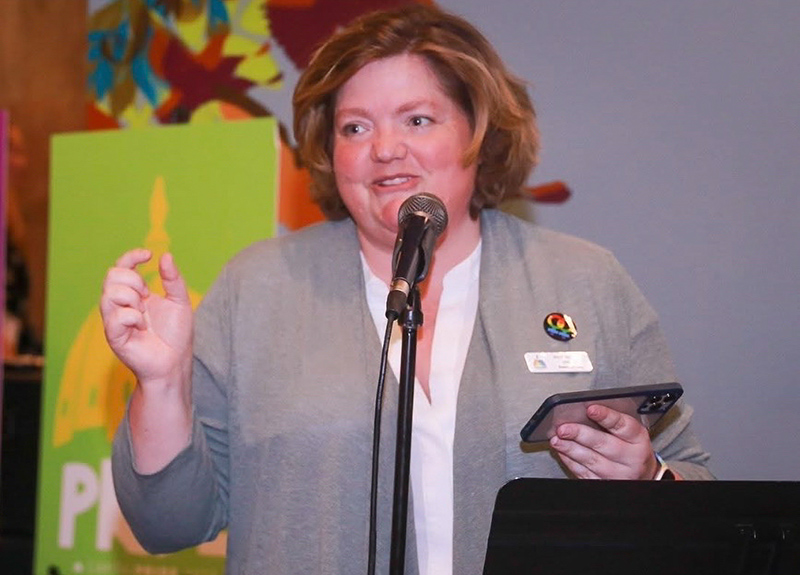
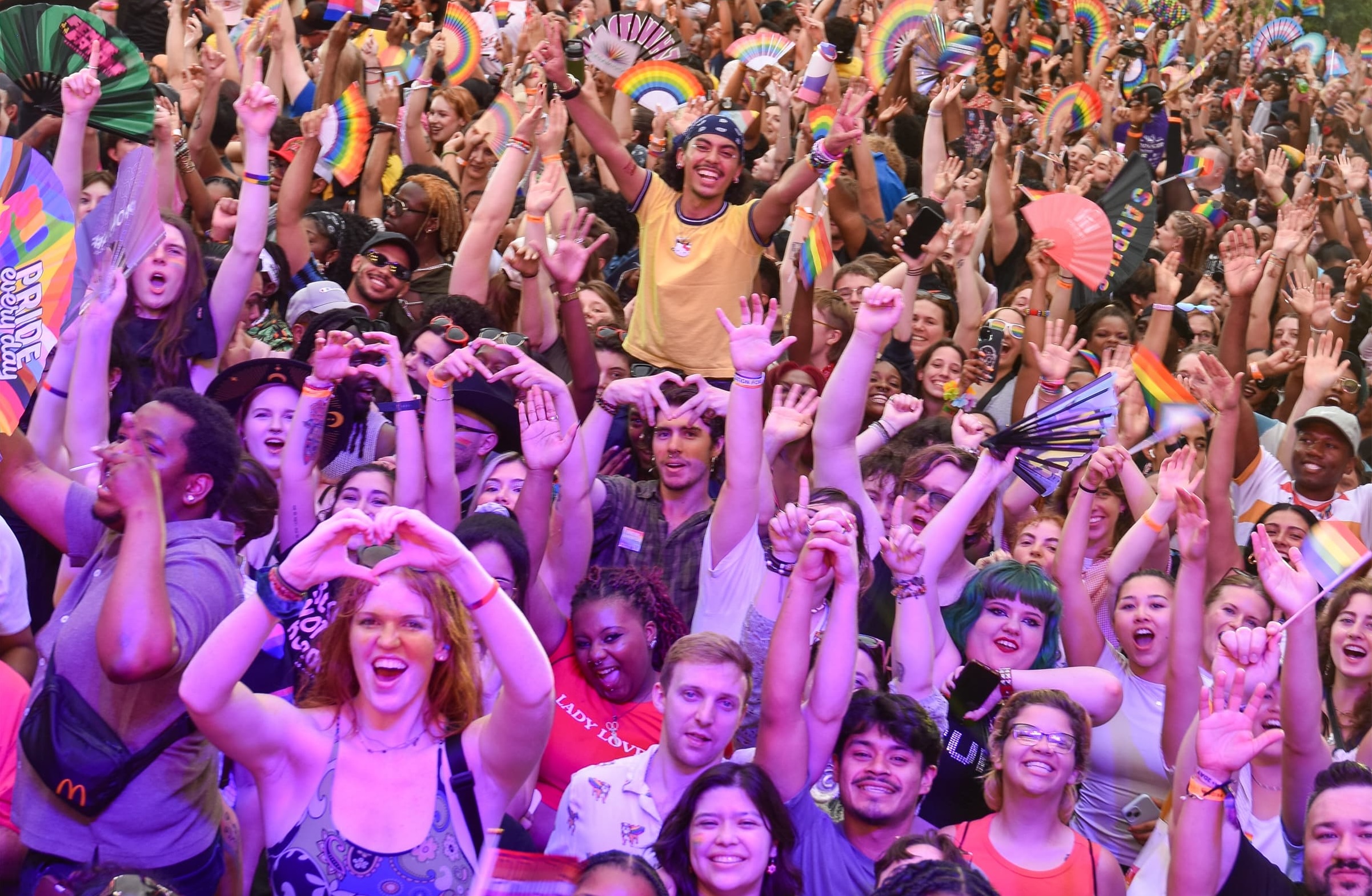














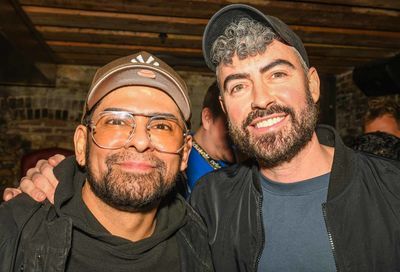
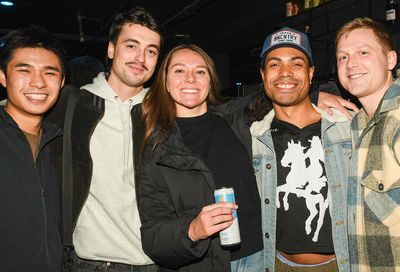
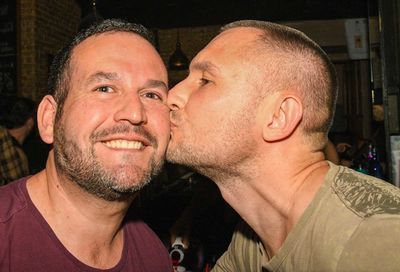
You must be logged in to post a comment.